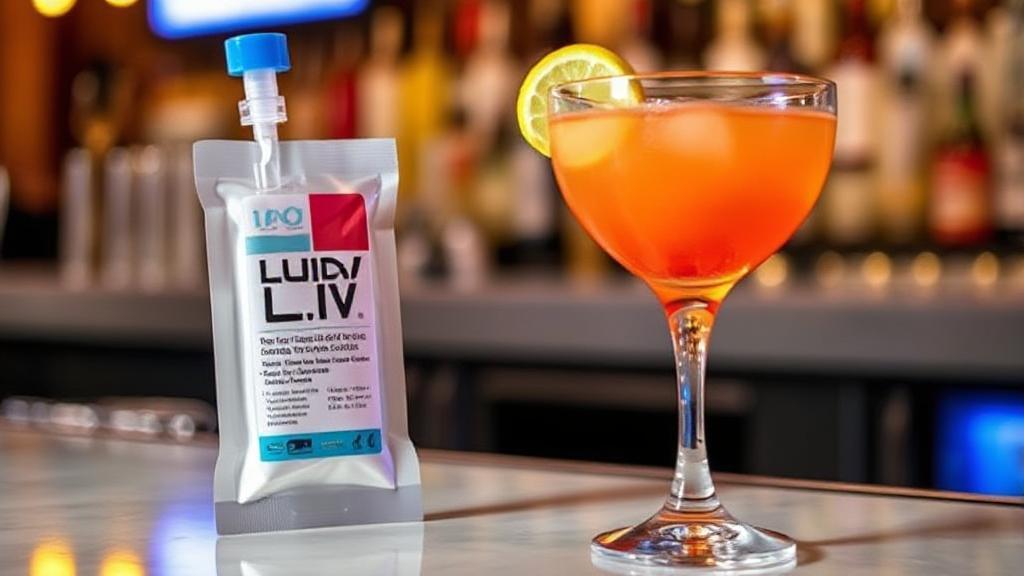Should I Drink Liquid IV Before or After Alcohol Consumption?
Alcohol consumption is a common part of social gatherings, but it often comes with the unpleasant side effect of dehydration—and, for many, the dreaded hangover. Liquid IV, a popular electrolyte hydration supplement, is frequently touted as a way to combat these effects. But when is the best time to use it: before, during, or after drinking alcohol? Let’s explore the science, expert recommendations, and practical strategies to help you make the most informed decision.
How Alcohol Affects Hydration
Alcohol acts as a diuretic, increasing urine production and leading to fluid and electrolyte loss. This dehydration is a major contributor to hangover symptoms such as headache, fatigue, dry mouth, and dizziness. For a deeper dive into the connection between alcohol and dehydration, see Effective ways to prevent dehydration and stay hydrated.
Alcohol also inhibits vasopressin, an antidiuretic hormone, which further impairs your body’s ability to retain water. According to the National Institute on Alcohol Abuse and Alcoholism (NIAAA), there’s no magic cure for a hangover, but addressing dehydration and electrolyte imbalance can help alleviate symptoms.
What Is Liquid IV and How Does It Work?
Liquid IV is an electrolyte drink mix designed for rapid hydration. It uses Cellular Transport Technology (CTT), a blend of sodium, potassium, glucose, and vitamins (such as B vitamins and vitamin C), to enhance water absorption in the body. This formula is based on the World Health Organization’s guidelines for Oral Rehydration Solutions, aiming to hydrate you more efficiently than water alone. Learn more about hydration science in How much water you should drink each day: daily hydration guidelines explained.
Should You Drink Liquid IV Before or After Alcohol?
Drinking Liquid IV Before Alcohol
Benefits:
- Pre-Hydration: Starting your night well-hydrated can delay the onset and severity of dehydration.
- Electrolyte Loading: Pre-loading with electrolytes like sodium and potassium helps maintain balance as alcohol depletes them.
- Energy Boost: Some formulas contain B vitamins, which may provide a mild energy lift.
How to Use: Mix a packet of Liquid IV with 16 ounces of water about 30–60 minutes before your first drink.
Considerations: While pre-hydration is beneficial, it won’t fully prevent dehydration if you drink excessively. It’s best used as part of a broader hydration strategy.
Drinking Liquid IV After Alcohol
Benefits:
- Rehydration: Helps replenish fluids and electrolytes lost during drinking.
- Symptom Relief: May reduce the severity of hangover symptoms like headache and fatigue.
- Faster Recovery: The glucose content provides a quick energy source for recovery.
How to Use: Take a serving after your last drink, before bed, or the next morning.
Considerations: This approach is reactive—some dehydration and symptoms may already be present.
Drinking Liquid IV During Alcohol Consumption
Alternating alcoholic drinks with water or an electrolyte beverage like Liquid IV can help maintain hydration in real time. While there’s limited research on this specific approach, it’s a practical strategy for longer drinking sessions.
Expert Recommendations and Practical Tips
Most health professionals agree that the best approach is to stay hydrated before, during, and after drinking alcohol. Here are some actionable tips:
- Hydrate Before Drinking: Drink a serving of Liquid IV before you start consuming alcohol.
- Alternate Drinks: For every alcoholic beverage, have a glass of water or a diluted electrolyte drink.
- Rehydrate After Drinking: Take another serving of Liquid IV after your last drink or before bed.
- Listen to Your Body: If you feel thirsty or notice early signs of dehydration, prioritize hydration immediately.
For more on hydration strategies, see Effective ways to prevent dehydration and stay hydrated.
Table: When to Drink Liquid IV
Important Caveats
- Not a Hangover Cure-All: Liquid IV can help with dehydration-related symptoms but won’t address all effects of alcohol, such as liver strain or sleep disruption.
- Does Not Lower BAC: It will not make you sober up faster or reduce your blood alcohol content.
- Not a License for Excessive Drinking: No hydration product can counteract the risks of heavy alcohol consumption. Drink responsibly.
For more on supporting your body’s recovery, see Natural ways to detox your body safely and effectively and Top supplements every athlete should consider for peak performance.
Best Practices for Alcohol Consumption
- Drink in Moderation: The CDC defines moderate drinking as up to one drink per day for women and up to two drinks per day for men.
- Alternate with Water: For every alcoholic beverage, drink a glass of water.
- Eat Before and While Drinking: Food can slow alcohol absorption.
- Choose Drinks Wisely: Clear liquors may cause less severe hangovers than darker ones.
- Get Enough Sleep: Alcohol disrupts sleep, so prioritize rest.
For more on boosting your body’s resilience, check out Natural ways to boost your immune system and Top vitamins that boost energy levels naturally.
Final Thoughts
Liquid IV can be beneficial both before and after alcohol consumption. For best results, consider using it as part of a comprehensive hydration strategy: hydrate before you start drinking, stay hydrated throughout the night, and rehydrate after you finish. Remember, no supplement can completely counteract the effects of excessive alcohol consumption, so always drink responsibly.
For more information on hydration, see How much water you should drink each day: daily hydration guidelines explained, and for additional recovery tips, explore The potential benefits of drinking alkaline water: What you need to know.
Disclaimer: This article is for informational purposes only and does not constitute medical advice. Consult your healthcare provider for personalized recommendations. If you are concerned about your alcohol consumption, please seek advice from a medical professional or resources like the SAMHSA National Helpline.
